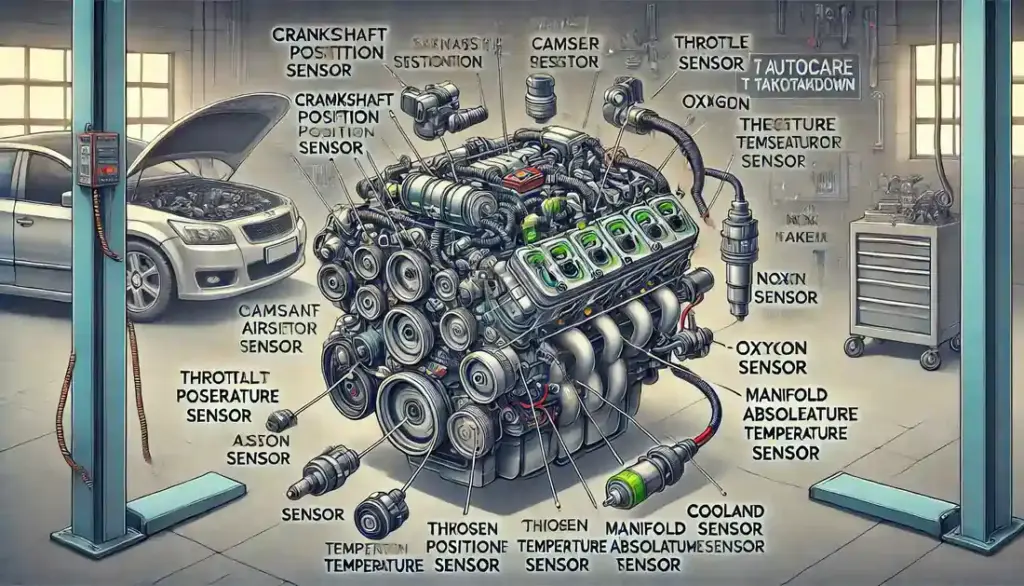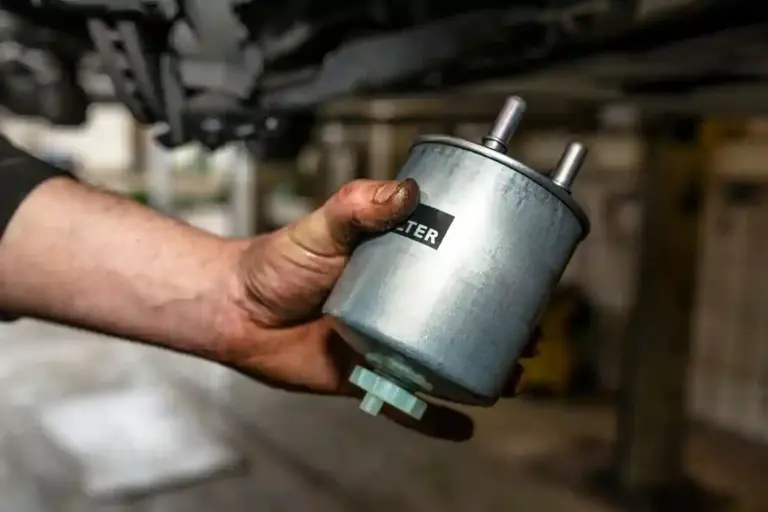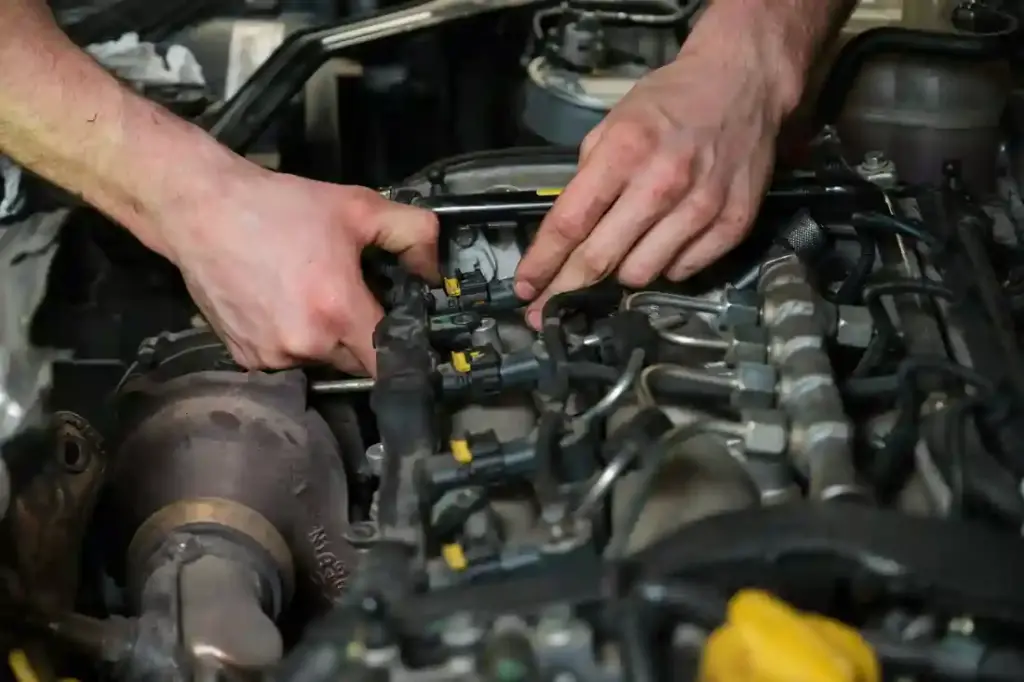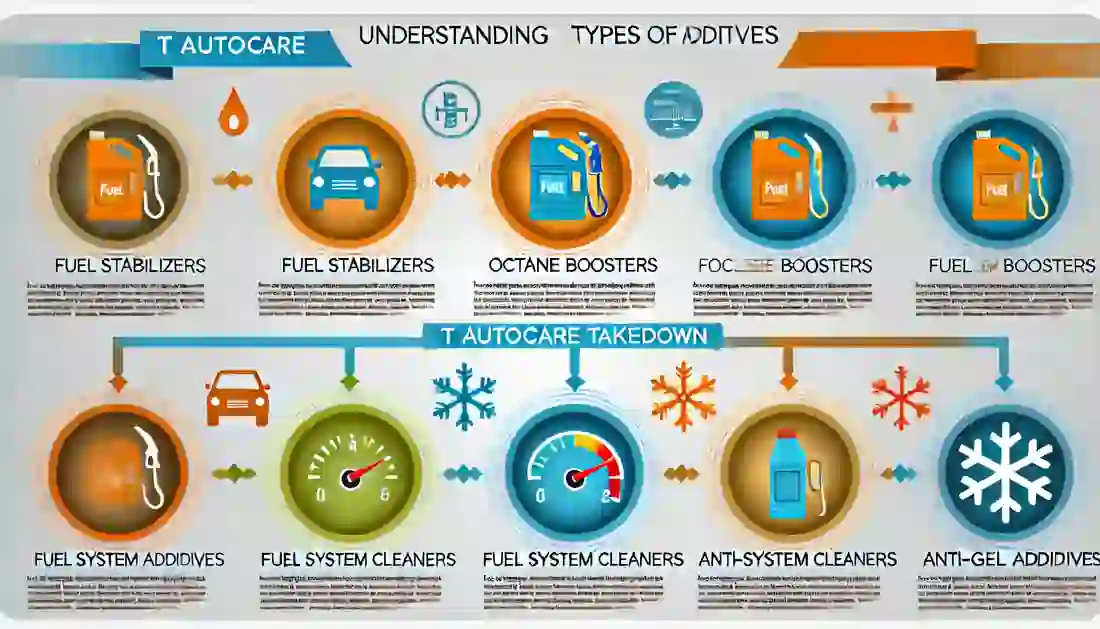Engine sensors are vital components in modern vehicles, playing a crucial role in maintaining optimal performance, enhancing fuel efficiency, and ensuring safety.
In this article, we will explore the different types of engine sensors, their functions, and their significance in your vehicle’s overall performance.

Types of Engine Sensors
Speed Sensors
Speed sensors are essential for monitoring the rotational speed of various engine components.
- Crankshaft Position Sensor: This sensor tracks the position and speed of the crankshaft, providing data that helps manage ignition timing and fuel injection. Proper function of this sensor ensures the engine runs smoothly and efficiently.
- Camshaft Position Sensor: Working alongside the crankshaft sensor, this sensor helps synchronize valve timing and ignition, ensuring optimal engine performance.
- Wheel Speed Sensor: Integral to the ABS and traction control systems, this sensor monitors wheel speed to prevent skidding and enhance vehicle safety.
Air Flow Sensors
Air flow sensors are critical for maintaining the correct air-fuel ratio in the engine.
- Mass Air Flow (MAF) Sensor: This sensor measures the amount of air entering the engine, providing data that helps adjust the fuel injection for optimal combustion.
- Throttle Position Sensor (TPS): It detects the position of the throttle valve, which regulates air flow into the engine. The TPS data is used to adjust fuel injection and ignition timing, ensuring efficient engine operation.
Exhaust Sensors
Exhaust sensors help monitor and control the emissions produced by the engine.
- Oxygen (O2) Sensor: Located in the exhaust stream, this sensor measures the oxygen levels in the exhaust gases. It helps the ECU adjust the air-fuel mixture to reduce emissions and improve fuel efficiency.
- NOx Sensor: This sensor measures nitrogen oxide levels in the exhaust, ensuring compliance with environmental regulations by adjusting the air-fuel mixture accordingly.
Temperature and Pressure Sensors
These sensors provide critical data on the engine’s operating conditions.
- Coolant Temperature Sensor: It monitors the temperature of the engine’s coolant to prevent overheating and ensure efficient operation.
- Manifold Absolute Pressure (MAP) Sensor: This sensor measures the pressure within the intake manifold, informing the ECU about the engine load for optimal fuel injection and ignition timing.
Additional Sensors
- Knock Sensor: Detects engine knocking, allowing the ECU to adjust ignition timing to prevent engine damage.
- Fuel Temperature Sensor: Ensures the fuel is at the optimal temperature for efficient combustion, preventing issues related to fuel density and flow.
Functions of Engine Sensors
Engine sensors are integral to monitoring and controlling various engine functions.
They provide the ECU with real-time data to make precise adjustments to fuel injection, ignition timing, and other critical parameters. This ensures optimal performance, fuel efficiency, and safety.
Benefits of Engine Sensors
Engine sensors offer numerous benefits, including:
- Increased Fuel Efficiency: By optimizing the air-fuel mixture and combustion process, sensors help reduce fuel consumption and emissions.
- Reduced Emissions: Sensors ensure that the engine operates within environmental standards by monitoring and adjusting the emissions output.
- Enhanced Engine Performance and Reliability: Real-time data from sensors allows the ECU to make adjustments that improve overall engine performance and reliability.
- Improved Safety: Sensors monitor critical engine functions and provide warnings for potential issues, enhancing driver and passenger safety.
- Better Vehicle Maintenance: Sensors provide valuable data that helps in maintaining the vehicle and preventing major issues before they occur.
Common Issues and Maintenance Tips
Regular auto maintenance is crucial to keep engine sensors functioning correctly. Common signs of sensor failure include poor fuel economy, rough idling, and increased emissions.
Regular check-ups at a reputable auto repair shop and timely replacement of faulty sensors can prevent significant issues and ensure your vehicle runs efficiently.
Final Thoughts
Understanding the role of engine sensors helps appreciate their importance in maintaining optimal vehicle performance and safety.
Regular maintenance and prompt attention to sensor issues can ensure your vehicle operates smoothly and efficiently.
For expert auto repair Broken Arrow, auto service, and sensor diagnostics, visit T Autocare Takedown at 1501 W Detroit St, Broken Arrow, OK 74012, or call (539) 367-3738.
Our experienced mechanics provide top-notch vehicle repair, car maintenance, and auto repair Broken Arrow services to keep your vehicle in excellent condition.
Useful Engine Sensor Links
- Understanding Engine Sensors (Counterman)
- Engine Sensors Explained (Partinfo)
- Different Types of Sensors in a Car (Acko Drive)
- Everything You Need to Know About Engine Sensors (CarParts)












